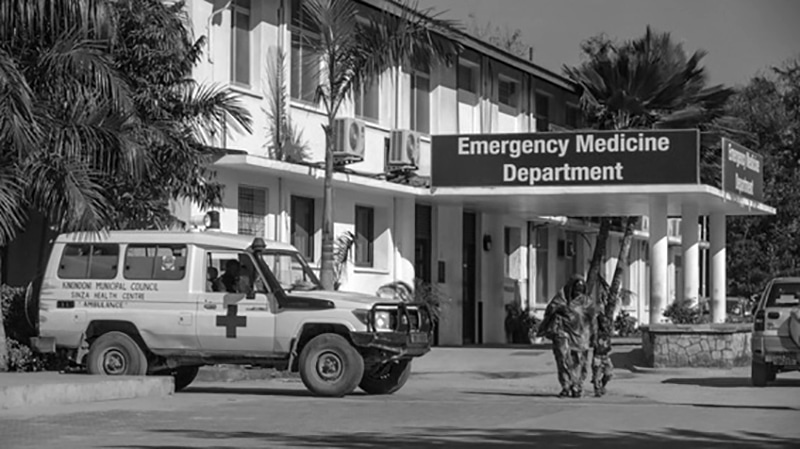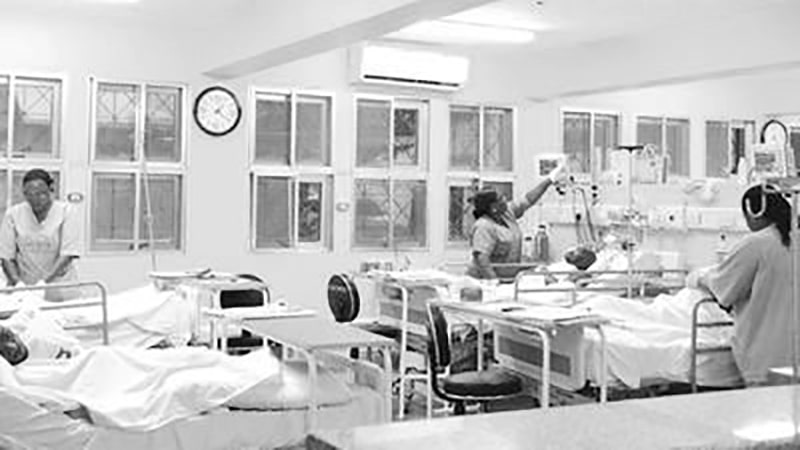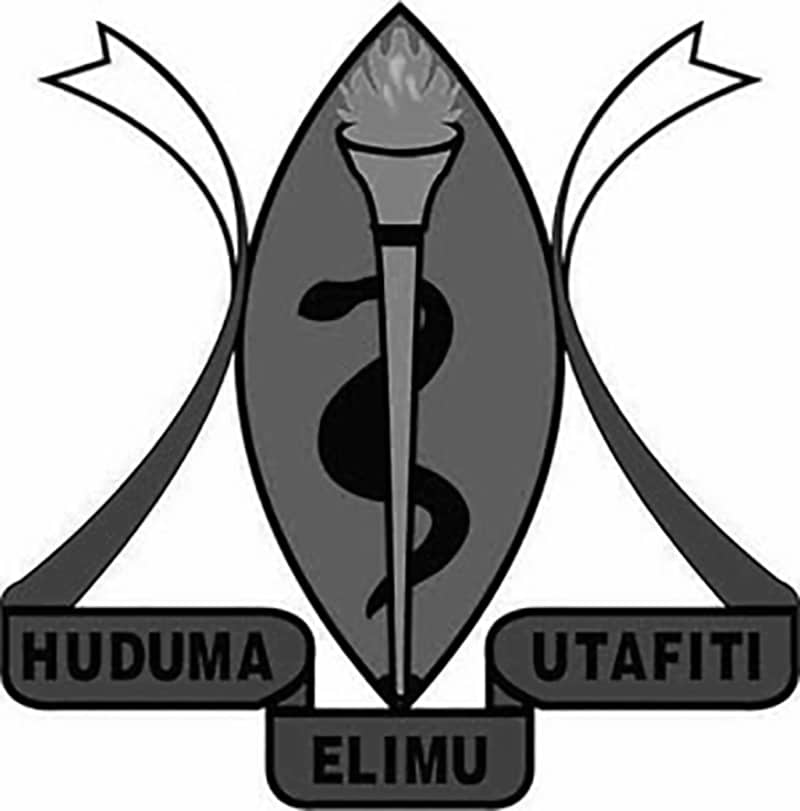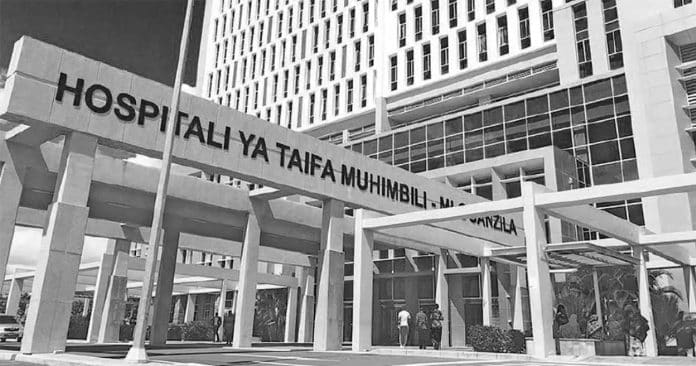Quick Snapshot of the Muhimbili National Hospital Dar es Salaam Tanzania (MNH)
The Historical Background of Muhimbili National Hospital Tanzania
The history of Muhimbili National Hospital roots can be drafted back in the 1910s and 1920s when it was called Sewahaji Hospital. The name of the Hospital was modified to Princess Margareth Hospital in 1956. Muhimbili National Hospital was established shortly after 1961’s independence and remained in that name until 1976, when it was renamed Muhimbili Medical Centre. MNH [Muhimbili National Hospital] was founded first by Muhimbili National Hospital Parliamentary ACT Number. 5 of 2000, which split the former MMC [Muhimbili Medical Centre] into Muhimbili National Hospital and MUCHS [Muhimbili University College of Health Sciences], presently the Muhimbili University of Health and Allied Sciences [MUHAS]. The split took place in November of 2004.
The primary objective of separating MMC and MUCHS was to ensure that Muhimbili National Hospital is more reliable, intending to become an officially recognized leading centre for hospital care in Africa by 2015. Offering a favourable teaching environment for training medical and allied health personnel, be a renowned centre of medical research in Africa. Actively evolving its human resources, achieving financial sustainability, strengthening the referral system’s links with other professional levels of care to further the goals of health sector improvement.
With a capacity of 1,500 beds, the Muhimbili National Hospital doubles as the National Referral Healthcare center and University Teaching Healthcare centre that sees 1,000 to 1,200 outpatients weekly and admits 1,000 to 1,200 in-patients per week.
Muhimbili National Hospital doctors list and specialists is about 300, there are also 900 registered and enrolled nurses, and the remainder being supporting staff, making a total of employed 2700 professionals. The Clinical Services, Nursing Services & Quality, Finance and Planning, Human Resources, Technical Services, Clinical Support Services, as well as Information & Communications Technology are the seven directorates that make up Muhimbili National Hospital, adding with twenty-five departments and one hundred and six units.
Muhimbili National Hospital Organizational Structure and Departments
Directorate of Medical Services
Amongst the Muhimbili National Hospital’s eight Directorates, the DMS [Directorate of Medical Services] is the largest. It is the Hospital’s primary function, and it is responsible for overseeing the provision of high-quality, super-specialist patient care, doctor training, and research. The Directorate ensures that services are delivered according to established operating and treatment guidelines.
The Directorate of Medical Services Structure and Staffing
The Directorate is divided into six units, which are as follows:

- Emergency Medicine Units.
- Outpatient department.
- Rehabilitative medicine.
- Psychiatry.
- Internal medicine.
- Pediatric and child healthcare.
There are 50 units in these departments, all of which are staffed by highly skilled professionals. To carry out all the Directorate’s tasks per the Muhimbili National Hospital Corporate Plan, each department has a distinct duty to perform. A maximum of 207 employees work for the Directorate, including twenty-eight super specialists, 52 experts, and one hundred and twenty-seven registrars.
Visiting the Clinic
You must obtain a recommendation from a Regional Hospital [Municipal Hospital] to schedule an appointment with one of our physicians, and you’ll be considered a public patient. Patients who self-refer or are referred by private hospitals will be classified as Private patients [IPPM]. Insurance firms are handled as private patients. Monday through Friday, the clinic is open from 7:30 a.m. to 3:30 p.m.
Directorate of Clinical Support Services (DCSS)
The DCSS [Directorate of Clinical Support Services] is responsible for ensuring that all patients at Muhimbili National Hospital get high-quality clinical support services 24 hours a day. The Directorate is responsible for ensuring that high-quality medicines are distributed to both outpatients and in-patients; there are no “out of stock” medicines. Adverse drug reactions [ADR] are constantly monitored and reported inside the Hospital, providing good-quality radiological and laboratory services. Medic and postgraduate students are supervised and trained.
Laboratory, Pharmacy, and Radiology are the three divisions that make up the Directorate. There are 12 units in these departments, with a total of 164 staff, including highly competent pharmaceutical, radiology personnel, laboratory, and assistant staff.
Directorate of Nursing Services
This is one of the Muhimbili National Hospital’s eight directorates. There are four departments and three units in the Directorate.
Nursing and Housekeeping, Catering, Social Welfare, and Central Sterilization are the departments that make up the Hospital. Laundry, Tailoring, and Hospital Quality Enhancement are the three units available. Its primary responsibility is to provide high-quality nursing care to in-patients and outpatients throughout the Hospital, including theatres, clinics, and other areas.
At Muhimbili National Hospital, the Directorate now serves 1000-1300 in-patient people in various wards and 100-500 outpatients and emergencies. There are a total of 1,095 nurses in the Directorate, with 832 of them being registered nurses, 92 comprising of graduates with various specialties, and 263 as enrolled nurses. There are also 13 social health officers, including 500 support staff.

Directorate of Technical Services (DTS)
The DTS [Directorate of Technical Services] oversees Muhimbili National Hospital’s engineering operations. The following are the key objectives:
- To assist and improve the quality of healthcare by coordinating renovations, infrastructure and building maintenance, hospital equipment plant, as well as machinery.
- Environmental monitoring involves general cleanliness, hospital complex landscaping, as well as the collection and getting rid of clinical and nonclinical garbage.
- Furthermore, the Directorate assists with the equipment maintenance tasks at the Eastern Zone Health care facilities.
There are two departments within the Directorate: Engineering and maintenance, as well as environmental services. The Directorate has 150 staff members, three registered professional engineers, nine graduate engineers, nine technicians, and others from various staff groups.
Directorate of Finance and Planning
The Directorate of Planning and Finance is one of eight departments within Muhimbili National Hospital that is tasked with the responsibility of overseeing the Hospital’s financial assets and liabilities. The Directorate is divided into three divisions: Budgeting and Final Accounts Units, Revenue and Expenditure Units. The Directorate employs a total of 72 staff, two of which are major accountants while the other is an assistant accountant. In addition, the Hospital gets financial and material aid from benefactors and other well-wishers, both inside and beyond the country.
Directorate of Information and Communication Technology (DICT)
The Management of Hospital Information Systems operations at Muhimbili National Hospital is overseen by the DICT [Directorate of Information and Communication Technology]. This includes ICT [information technology], medical documents, and telephone facilities, all of which have a total workforce of 109 staff members. There are two departments in the Directorate: Information, Interactions & Technology and Health Records.
Directorate of Human Resources
According to the Muhimbili National Hospital’s present organizational structure, the Directorate of Human Resources is among the eight directorates. This Directorate is arranged as a strategic management tool that supports plans for acquiring, developing, and retaining human resources ways of achieving the Hospital’s mission, corporate vision, and goals in an efficient and productive way. Additionally, the Directorate is very much in charge of both the Muhimbili National Hospital’s administration and staff management. It provides various services and information to the committee of Trustees, Management, and staff.
The Directorate is in charge of strategic organization, policy formulation and review. It serves as a liaison between the Government, the Muhimbili National Hospital, and other stakeholders on HRM [human resource management] and administrative issues.
The Directorate also oversees the management of staff housing and intern lodgings, the coordination of intern rotations and their well-being, and inter-institutional relations with sister institutions.
The Directorate Structure and Staffing
The Compensation and Industrial Relations Unit, the Recruitment and Training Unit, and the Security unit are the 3 departments that make up the Directorate. In order to carry out the Directorate’s tasks per the Hospital Strategic Plan, each unit has a distinct duty to perform. Six Human Resource Officers, three Administrative Officers, thirty-five Security Guards/System Operating officers, as well as the support personnel, which includes secretaries, registry clerks\officers, and workplace assistants, make up the Directorate’s 74 employees.
Policy Review and Formulation
Under the control of the Director of Human Resources, all three departments are in charge of policy development and evaluation.
Research, Training and Consultancy Unit
This unit was created to oversee all of Muhimbili National Hospital’s research, teaching, and consulting activities. According to the present organisational framework, the division is one of 8 directly reporting to the ED [Executive Director]. It has been established to organize all research, teaching, and consulting events that take place at the Hospital.
Core Functions
The division is in charge of examining the Muhimbili National Hospital’s research policy and making suggestions to management. It is also in charge of directing and supervising research activities at Muhimbili National Hospital and ensuring that findings of the research are turned into excellent improved clinical practice. The department also manages the Muhimbili National Hospital’s institutional review board’s [IRB] work and ensures that research is conducted following internationally recognized standards.
Other Functions
This unit is also in charge of forming research collaborations with both domestic and international organizations. Engaged in the quest for research grants as well as the establishment and coordination of the Muhimbili National Hospital magazine, where research discoveries can continuously be published. Furthermore, It creates and manages research and development, funds, and policies. Encourages and energizes the Muhimbili National Hospital community to undertake research in order to realize a long-held goal of building a research and publishing centre.
Teaching Coordination
The unit is in charge of:
- The coordination of educational programs involving both domestic and international students.
- Collecting, evaluating, and approving requests for elective and internship courses, as well as research for both domestic and international students [check registration form]
Consultancy Coordination
The units monitor and coordinate consulting work at Muhimbili National Hospital, and they make sure that norms are put in place for staff who work on consultancies.
Quality Assurance Unit
We understand the importance of providing high-quality health care to our patients at Muhimbili National Hospital. As a result, we endeavour to provide services that meet, if not surpass, our customers’ expectations. We are dedicated to continual development and have implemented a Quality Management System to help us measure and optimize our results.
As part of the Hospital’s mission, the Quality Assurance Unit provides effective, well organized, high-quality tertiary professional and highly technical medical services to refer patients from across Tanzania and provides an environment conducive to training and research. These services are delivered in a professional setting where our core values are safety, quality, respect, integrity, and security.
The department oversees assisting with hospital and departmental quality improvement programs. This entails assessing and analyzing activities and operations. Furthermore, the unit collaborates with workers and managers at Muhimbili National Hospital to advocate, plan, and execute changes and innovations.
Additional Departments
- PROCUREMENT MANAGEMENT DEPARTMENT
- LEGAL SERVICES DEPARTMENT
- CORPORATE REPORTING AND CUSTOMER SERVICES
- INTERNAL AUDIT DEPARTMENT
Muhimbili National Hospital Address
Muhimbili National Hospital,
P O Box 65000,
Dar es Salaam.
Telephone : +011 255-22-2151367-9
Fax Number: +011 255-22-2150534
Email Address: info@mnh.or.tz
Muhimbili National Hospital Logo

Muhimbili National Hospital Mloganzila – https://www.mloganzila.or.tz/index
For more articles related to Hospitals in Tanzania, click here!






























